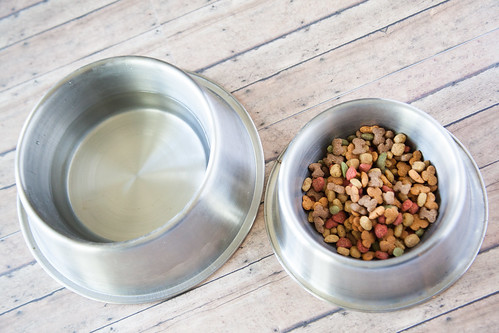If you shop for dog food without looking at the nutrition information, then you’re guilty of neglecting your canine’s health. Dog nutrition is a crucial aspect that should not be overlooked by any pet parent. For all the love that your pooch has given you, he surely deserves the best care and the best quality dog food.
A little bit of research is all it takes to understand canine nutrition and to actively avoid foods that are dangerous to your dog. To further supplement your knowledge on which foods are best for your dog, here are some nutrition facts you should now.
1. There are key essential nutrients
Your dog has to receive the right combination of nutrients to stay healthy. When buying dog food, the label should include “complete and balanced nutrition” and a mix of the following ingredients:
· Proteins – Out of the 23 amino acids which are the building blocks of proteins, the dog’s body only makes 13 of them. Since body tissues are a buildup of proteins, your dog needs to obtain the other 13 amino acids from plants and meat.
· Fats – Besides giving energy, fats also keep your dog’s hair and skin healthy. The dog’s body cannot create enough fatty acids on its own, which is why why your pooch needs to obtain food that has them. Important fats that you can feed your dog are omega-3 (linoleic acid) and omega-6 (DHA and EPA) fatty acids.
· Carbohydrates – When your pooch is able to eat vegetables and grains, he gets fuel for his body tissues and his intestines are kept healthy.
· Vitamins and Minerals – These are vital for building and keeping bones strong. However, the dog’s body doesn’t produce all vitamins and minerals. A complete and balanced dog food should include vitamin A, D, E, and K, B-complex vitamins, phosphorus and calcium.
· Water – Even if your dog loses half his protein and all his body fat, he can survive. But without water, your pal could die – even if he loses only one-tenth of liquid in his body. Don’t rely entirely on dog food for water as it’s not sufficient enough for your pooch. Make certain that your pet always get fresh and clean water at all times.
2. Dogs have a carnivorous nature
Carnivores are animals whose diets mainly consist of meat. Although your dog may enjoy eating vegetable and fruits, his anatomical makeup shows that he has evolved from a carnivore.
With an acidic and short digestive tract, your dog’s carnivorous biological makeup allows him to digest animal fat quickly. Also, your dog secretes huge amounts of hydrochloric acid which assists meat breakdown and kills the bacteria in raw meat. In contrast, plant matter takes much longer to break down in his body.
3. Pet parents must be wary of food fragments
These are usually low-quality leftovers from some types of food that you should avoid. When looking at dog food labels, you should also avoid the following:
· Middlings or mids
· Cereal food fines
· Millrun
· Oat Hulls
· Potato product
· Rice Hulls
· Corn Bran
· Distillers grain fermentation soluble
· Peanut Hulls
· Ground up wood particles (cellulose)
You will rarely see the items above on dog food labels. Nevertheless, it pays to be careful whenever picking out your dog’s food.
4. There are diverse qualities of meat proteins
Among meat proteins, there are still some which are easier for your dog to digest than others. If two food ingredients have a similar protein percentage on a dog food label, your pooch may be able to able to absorb one food better than the other.
· Muscle Meat – Consists of beef, chicken and lamb which are 92% digestible.
· Fish Meat – This has around 75% of digestibility.
· Organ Meat – The heart, kidney and liver are 90% digested by a dog’s body.
· Plant – Plant-based sources of protein such as rice, soy, oats, corn, and wheat have the digestibility of between 54 to 75%.
5. Sugar and artificial sweeteners can do harm
These ingredients make food more pleasant for dogs. However, they put in additional calories which are unnecessary and have no value for nutrition. What’s worse, sugar can lead to nervousness, tooth decay and hyperactivity.
To effectively manage your dog’s weight, you also have to avoid the following ingredients:
· Sorbitol
· Sucrose
· Cane molasses
· Glucose
· Corn syrup
· Propylene glycol
· Fructose
· Ammoniated glycyrrhizin
· Xylitol
Understanding what makes a good diet can help you promote the best pet health for your beloved dog. Feed your pooch good quality food on time and allow small amounts of fruits and vegetables in his diet. Remember, although dogs are originally carnivores, they need more than just meat to stay healthy.
AUTHOR BIO
Farah Al-Khojai is the Managing Partner of Pet’s Delight. A passionate entrepreneur, Farah holds a Bsc in Government from the London School of Economics. She is always on the lookout for new opportunities to develop and grow the pet and equestrian retail and wholesale market in the UAE and beyond, and is proud to be at the helm of the first and the largest pet care provider in the market representing world-class brands including Orijen, Applaws, Hunter, Savic, Flamingo, Ruffwear and Rogz.
